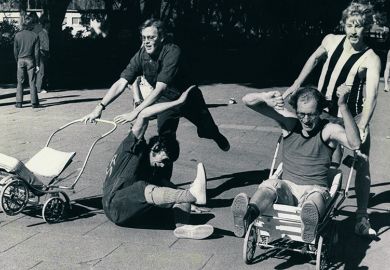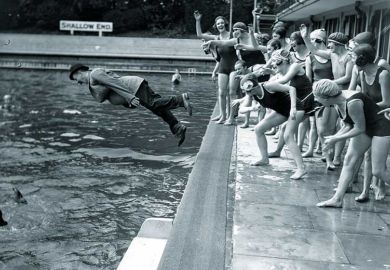The erosion of elected representation on universities’ governing bodies has set the scene for funding cuts, job insecurity, escalating executive pay packets and the decline of student activism, according to the Australian Greens.
A Greens analysis has found that the number of elected council members at public universities has crashed by 43 per cent over the past two decades, from 274 in 2000 to 155 last year. Staff and student representatives’ share of positions on the shrinking governing bodies has fallen from more than one-third to less than one-quarter, with elected members no longer in the majority at any university.
The findings are outlined in a discussion paper released by Greens education spokeswoman Mehreen Faruqi, a former academic. The paper asks whether a minimum proportion of university council members should be “democratically elected” by staff and students from within university communities.
The paper also poses 23 other questions on university leadership, transparency, accessibility, job security, big business influence, indigenous participation, racism, international education and sectoral reform. They include whether vice-chancellors and deans should be elected by staff and students, and how to generate adequate funding for student activism.
The Greens say that the combination of federal and state legislation and “active steps” by university management has left staff and students with little say in decisions that affect them. Such decisions have been outsourced to “a small group of unelected senior managers” and governing body appointees who “have entrenched a corporate university model”.
“The collapse of democracy on university campuses has had devastating consequences for staff and students,” Dr Faruqi said. “Funding cuts, fee hikes, systemic wage theft and rampant casualisation have all followed.
“For too long, short-sighted governments and private interests have dominated conversations about what higher education should look like. We have to take the power back from the anti-intellectual governments and private interests that currently run the show.”
The comments reflect some academics’ concerns that universities are being overseen by people with little understanding of higher education. But economist John Howard said that councils stacked with academics were also problematic because they helped foster the sector’s “ivory towers” image.
“When university councils were dominated by appointees with academic backgrounds, they were inward-looking and isolated from the communities they served,” said Dr Howard, a visiting professor at the University of Technology Sydney (UTS) and former pro vice-chancellor of the University of Canberra (UC).
“It is important to have people on council who fully understand the ‘business’ of a university from an external perspective. But the trend definitely seems to be away from academics, elected or otherwise.”
Dr Howard said universities were “fortunate” to have their governing bodies headed by corporate and civil service heavyweights such as Commonwealth Bank chair Catherine Livingstone (chancellor at UTS), former Australia and New Zealand Banking Group chair David Gonski (UNSW Sydney), former chief federal public servant Peter Shergold (University of Western Sydney) and former race discrimination commissioner Tom Calma (UC).
Dr Faruqi said university governance clearly benefited from diverse experience. “But there’s a big difference between a business-dominated university council and one that’s made up of a range of members from different parts of the university community, elected by staff and students,” she said.
“The domination of unelected corporate appointees has corresponded with fee hikes, funding cuts, casualisation and marketisation of universities. We really ought to interrogate that.”
Register to continue
Why register?
- Registration is free and only takes a moment
- Once registered, you can read 3 articles a month
- Sign up for our newsletter
Subscribe
Or subscribe for unlimited access to:
- Unlimited access to news, views, insights & reviews
- Digital editions
- Digital access to THE’s university and college rankings analysis
Already registered or a current subscriber?











